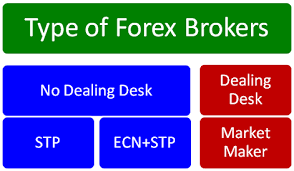The Financial Conduct Authority (FCA) is a quasi-governmental agency of UK which was created as a successor to the Financial Services Authority (FSA). This body is responsible for regulating firms that provide financial services for consumers of all types (including investors and individual traders) and to maintain the integrity of the financial markets in the UK. Basically the FCA focuses on the regulation of the conduct and integrity of the companies that provide financial services in the country (including those that are subject to supervision by the PRA). Like its predecessor the FSA, FCA is structured as a company limited by guarantee.
This entity is also responsible for the prudential regulation of small firms of the financial sector that do not fall under the jurisdiction of the Prudential Regulation Authority (PRA), such as Forex brokers.
Foundation of the FCA
On December 19, 2012, the Financial Services Act 2012 received Royal Assent and came into force on April 1, 2013. This Act creates a new regulatory framework for financial services and suppresses the Financial Services Authority. Specifically, the Act gives the Bank of England full responsibility for financial stability in the UK, in a way that combines both macro and micro-prudential regulation and creates a new regulatory structure consisting of the Financial Policy Committee of the Bank of England, the Prudential Regulation Authority and the Financial Conduct Authority.
Powers of the FCA
From the moment of its creation, the FCA has important powers within the UK financial sector, including the power to regulate the conduct relating to the marketing of financial products. In this case, the FCA is able to specify minimum standards and enforce requirements for products and services.
In addition, the FCA also has the power to ban financial products up to a year while considering an indefinite ban. Even the FCA also has the power to instruct financial firms to withdraw or modify their main promotions immediately if the FCA thinks that these offers are misleading. In these cases, the FCA can make these decisions public.
Impact of the FCA on financial services firms in the UK, including brokers
Companies that are already regulated by the FSA will have the same rights in the new regulatory framework, which means that these firms do not need to apply to be accepted in the FCA or the PRA (Prudential Regulation Authority) as its existing authorizations and regulatory approvals remain in force.
The new regulators, including the FCA, have powers that the FSA did not have. This reflects the increasingly interventionist regulatory approach that has developed in Europe in recent years. The FCA, as a regulator of financial services in the UK, has as its primary role to avoid any financial scandal preventively. Experience shows that strict regulations that apply strictly the law are effective to deal with the financial companies that are on the darker end of the spectrum and apply questionable practices to the detriment of their customers, as some Forex brokers have become famous precisely for this type of practice.
As indicated above, the FCA has new objectives and powers of an intervention designed to disrupt unethical practices of financial services companies, rather than await the outcome of court proceedings that can sometimes last for years. In the Financial Services Act 2012, the UK authorities also extended the scope of the crimes related to financial deception.
In other words, companies that provide financial services in the UK which are enrolled in the FCA, such as Forex brokers, brokers specialized in CFD and spread betting firms for example, currently must meet stricter regulations, which prevent among other things, the use of unethical practices that may cause harm to their clients, including the use of misleading advertising about their products in order to increase their number of customers.
Lists of brokers regulated by the FCA
The following is a list of brokers that are currently regulated by the FCA:
| Broker | Trading instruments | Minimum deposit | Complete review |
|---|---|---|---|
| $250 | Review | |
| HYCM |
| $50 | Review |
| Pepperstone |
| $100 | Review |
| $250 | Review | |
| XM |
| $5 | Review |
FXOpen |
| $300 | Review |









